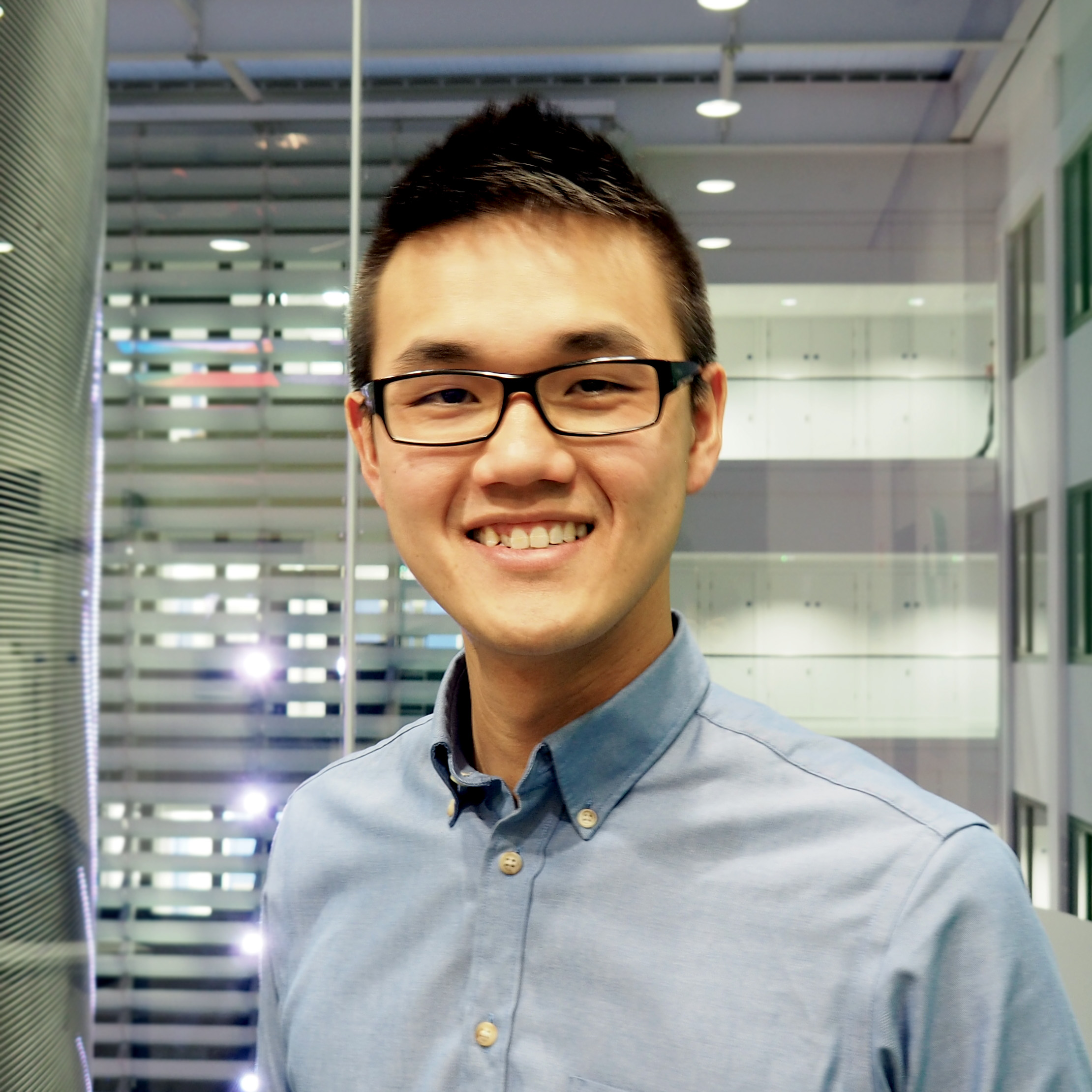Zach Pang is a researcher at the Bioprocessing Technology Institute, A*STAR where he applies advanced glycomic techniques in biopharmaceutical and food industries. He has a strong interest in applying mathematical techniques to solve biological and analytical chemistry problems.
He developed an interest in cross-disciplinary research when he was pursuing his Bachelor of Technology in Mechanical Engineering at the National University of Singapore, where he did his undergraduate research on cancer cell mechanics. He subsequently joined the Department of Bioengineering at Imperial College London to pursue his PhD under the A*STAR Scholarship. Zach Pang also holds a Master of Business Administration from Quantic School of Business and Technology and a postgraduate certificate in learning and teaching in higher education from the University of London. He is an associate fellow of the Higher Education Academy, UK (AFHEA), a professional member of the European Society of Cardiology (ESC), and a member of the Institute of Physics and Engineering in Medicine (MIPEM).
Chia S, Teo G, Tay S J, Loo L S W, Wan C, Sim L C, Yu H, Walsh I, Pang K T*, An integrative glycomic approach for quantitative meat species profiling. Foods, 11 (13), 1952, 2022.
Ghim M, Pang K T, Burnap S, Baig F, Yin X, Arshad M, Mayr M, Weinberg P D, Endothelial cells exposed to atheroprotective flow secrete follistatin-like 1 protein which reduces transcytosis and inflammation. Atherosclerosis, 333, 56-66, 2021.
Pang, K T*, Ghim M, Liu C, Tay H M, Fhu C W, Chia R N, Qiu B, Sarathchandra P, Chester A, Yacoub M, Wilkinson F L, Weston R, Warboys C M, Hou H W, Wang X*, Weinberg P D*, Leucine-rich α-2-glycoprotein 1 suppreses endothelial cell activation through ADAM10-mediated shedding of TNF-α shedding. Frontiers in Cell and Developmental Biology., 9, 1743, 2021.
Pang K T*, Tay S J, Wan C, Walsh I, Choo M S F, Yang Y S, Choo A, Ho Y S, Nguyen-Khuong T*, Semi-automated glycoproteomic data analysis of LC-MS data using GlycopeptideGraphMS in process development of monoclonal antibody biologics, Frontiers in Chemistry, 9, 355, 2021.
Pang K T#, Ghim M#, Arshad M, Wang X, Weinberg PD, Segmenting growth of endothelial cells in 6-well plates on an orbital shaker for mechanobiological studies. Journal of Visualized Experiments, 2021.
Rickman M, Ghim M, Pang KT, von Huelsen Rocha A C, Drudi E M, Ayoub N, Tajadura-Ortega V, George S J, Weinberg P D and Warboys, C M, 2021. Frizzled-4 regulates β-catenin in endothelial cells exposed to disturbed flow via an atypical Wnt pathway leading to proinflammatory activation and increased permeability. bioRxiv, 2021.
Menon N V, Su C, Pang K T, Phua Z J, Tay H M, Dalan R, Wang X, Li K H H, Hou H W, Recapitulating atherogenic flow disturbance and vascular inflammation in a perfusable 3D stenosis model. Biofabrication. 12(4), 2020.
Zhang G, Lin S, Leow C H, Pang K T, Hernández-Gil J, Long N, Eckersley R, Matsunaga T, Tang M, Quantification of Vaporised Targeted Phase-Change Contrast Agents using High Frame Rate Ultrasound and Optics. Ultrasound in Medicine & Biology, 45(5), 2019.
Soor N S, Quicke P, Howe C L, Pang K T, Neil N A A, Schultz S, Foust A J, All-optical crosstalk-free manipulation and readout of Chronos expressing neurons. Journal of Physics D: Applied Physics, 52(10), 2019
Ghim M#, Pang K T#, Arshad M, Wang X, Weinberg, PD, A novel method for segmenting growth of cells in sheared endothelial culture reveals the secretion of an anti-inflammatory mediator. Journal of Biological Engineering, 12:15, 2018.
Menon N V, Tay H M, Pang K T, Dalan R, Wong S C, Wang X, Li K H H, Hou H W, A tunable microfluidic 3D stenosis model to study leukocyte-endothelial interactions in atherosclerosis. APL Bioengineering, 2, 016103, 2018.
Nematbakhsh Y#, Pang K T#, Lim C T, Correlating the viscoelasticity of breast cancer cells with their malignancy. Convergent Science Physical Oncology, 3(3):034003, 2017.
#Co-first author *Corresponding author


